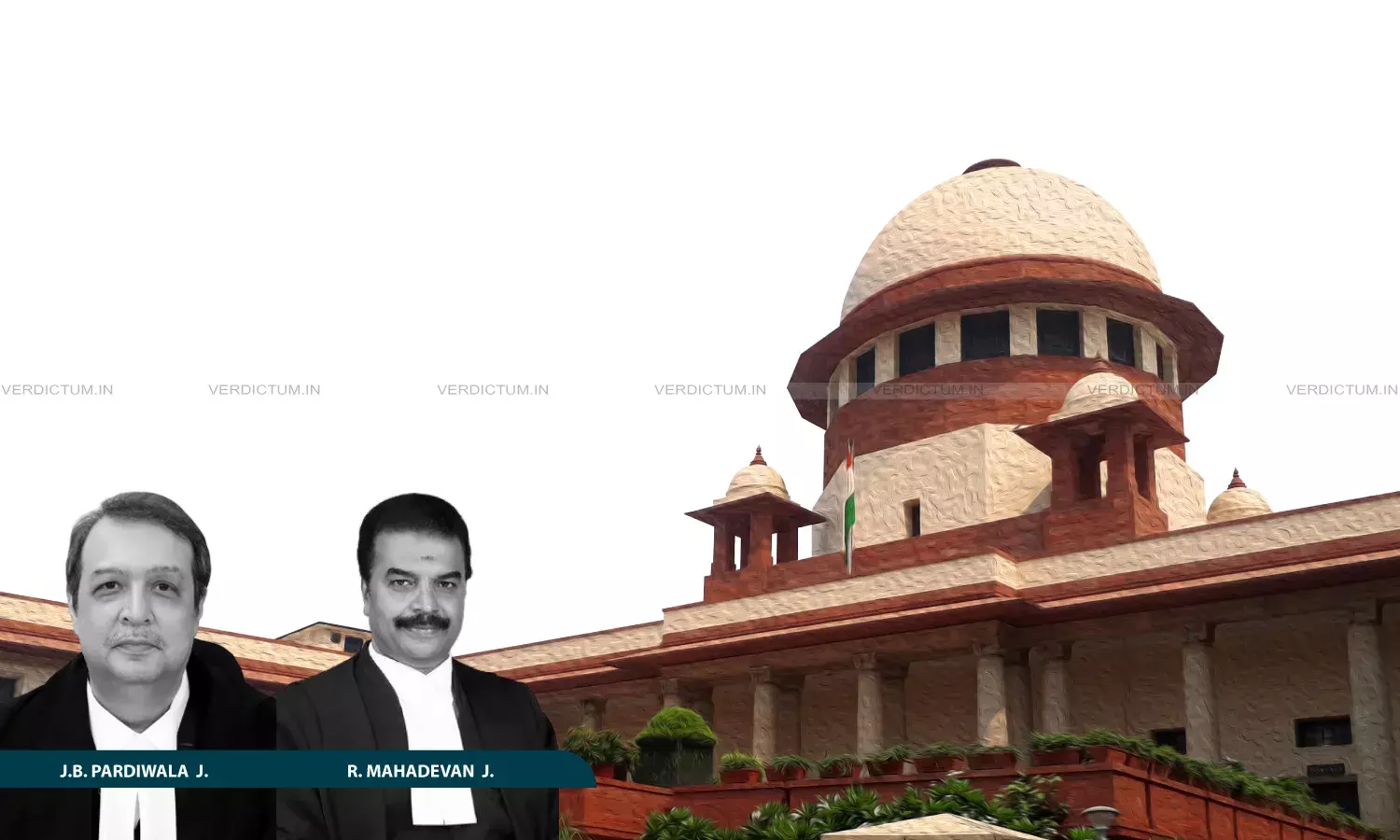Plea Of Adverse Possession To Be Specifically Raised In Pleadings, It Can’t Be Flung As Surprise For The First Time In Appeal: Supreme Court
The petition before the Supreme Court arose from the judgment passed by the Jharkhand High Court in a Second Appeal filed by the respondents (original defendants).

Justice J.B. Pardiwala, Justice R. Mahadevan, Supreme Court
The Supreme Court has ruled that the plea of adverse possession has to be specifically raised in the pleadings, put in issue, and such plea cannot be allowed to be flung as a surprise, on an unsuspecting defendant, for the first time in appeal.
The petition before the Apex Court arose from the judgment passed by the Jharkhand High Court in Second Appeal filed by the respondents (original defendants), which came to be allowed, thereby setting aside the judgment and order passed by the First Appellate Court preferred by the petitioners (original plaintiffs).
The Division Bench of Justice J.B. Pardiwala and Justice R. Mahadevan observed, “The above discussion leads us to the only conclusion, and that is, that, unless the plea of adverse possession has. been specifically raised in the pleadings, put in issue, and then cogent and convincing evidence led on a multitude of points, and an opportunity to refute the case made out by the plaintiff, availed of by the defendant, the plea of adverse possession cannot be allowed to be flung as a surprise, on an unsuspecting defendant, for the first time in appeal.”
Factual Background
The plaintiffs instituted a Title Suit and prayed for a decree declaring that the Sale deed was bogus and inoperative. The suit ultimately came to be dismissed. The plaintiffs, being dissatisfied with the judgment, preferred a First Appeal, which came to be allowed, and the suit instituted by the plaintiffs came to be decreed. The First Appellate Court accepted the plea of adverse possession put up by the plaintiffs and decreed the suit. The original defendants preferred a Second Appeal in the High Court, which was allowed.
The High Court took the view that there was no foundational pleading led by the plaintiffs in connection with the claim of adverse possession in the plaint or in the written statement, and there was no occasion for the First Appellate Court to frame an issue of adverse possession.
Reasoning
The Bench reiterated that the foundation for the plea of adverse possession must be laid in the pleadings and an issue must be framed and tried. A plea not properly raised in the pleadings or issues at the stage of trial would not be permitted to be raised for the first time at the stage of First Appeal under Section 96 of the Code of Civil Procedure (CPC).
Coming to the law of pleadings, the Bench explained, “It is important to remember that the basic rule of law of pleadings is, that a party can only succeed according to what he has alleged and proved, otherwise, on the principle of secundum allegata et probata, a party is not allowed to succeed, where he has not set up the case which he wants to substantiate.”
The Bench was of the view that the determination of adverse possession depends upon sifting of facts and circumstances, indicative of adverse possession, and then, upon testing of the evidence in the light of the law applicable. The Appellate Court may allow the setting up of the plea of adverse possession for the first time in appeal provided, the facts on the record are sufficient to support it, and the opposite party is not taken by surprise, but otherwise, a declaration of title by adverse possession will not be given where the claim is not set out distinctly in the pleadings or in issues.
The Bench further held, “In the case at hand if plea of adverse possession had been taken in the plaint, and if that plea had been traversed by the defendants and then proper issues framed, a heavy burden would have laid on the plaintiffs to lead evidence in support of their hostile claim and a corresponding opportunity of rebuttal would have been given by law to the defendants. In this case it is inconceivable that the question of adverse possession can become the subject matter of adjudication on this record in the absence of proper plea, issue or proof.”
Thus, in light of such facts, circumstances and legal aspects, the Bench dismissed the Petition.
Cause Title: Kishundeo Rout & Ors. v. Govind Rao & Ors. (Neutral Citation: 2025 INSC 956)

